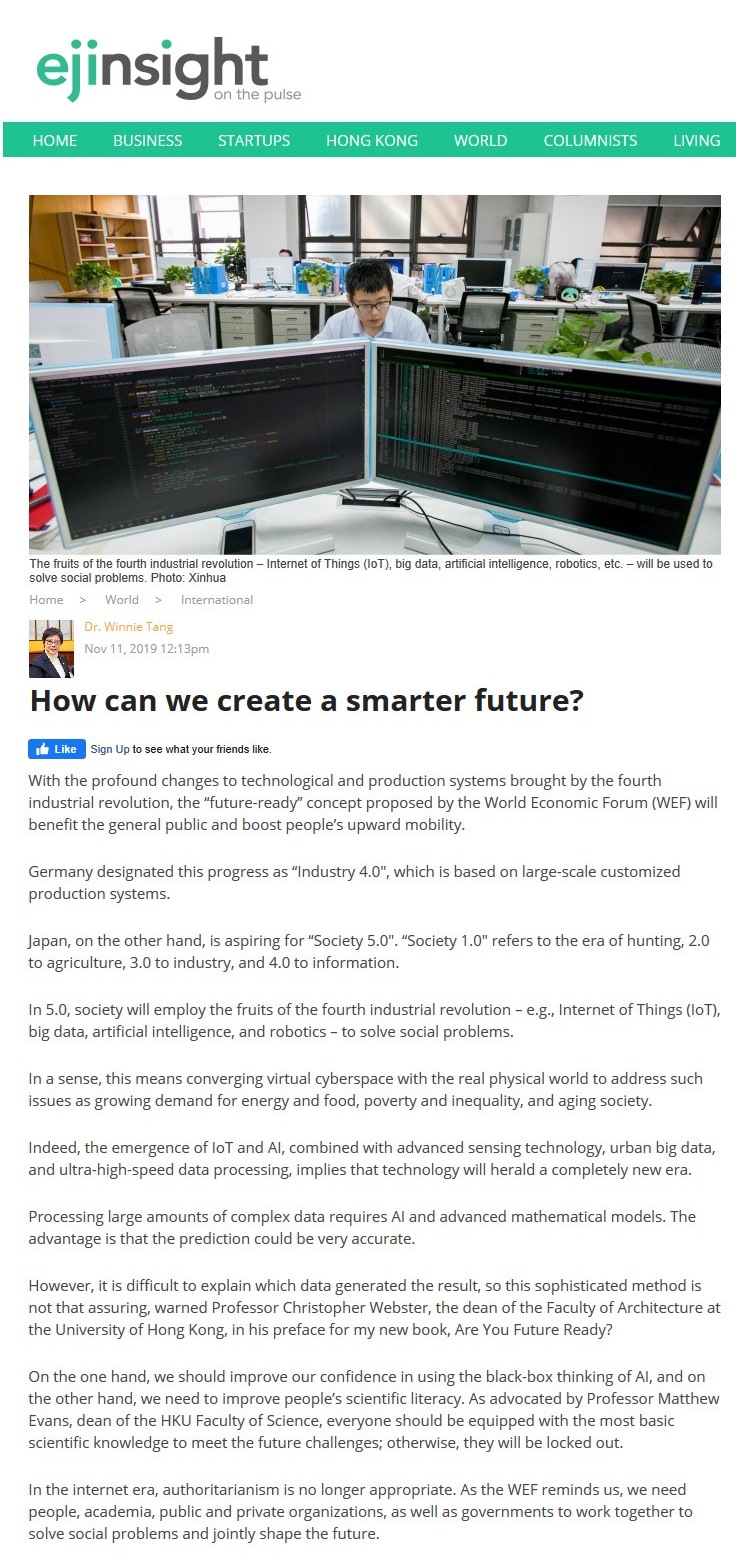網上版請按此

How can we create a smarter future?
With the profound changes to technological and production systems brought by the fourth industrial revolution, the "future-ready" concept proposed by the World Economic Forum (WEF) will benefit the general public and boost people's upward mobility.
Germany designated this progress as "Industry 4.0", which is based on large-scale customized production systems.
Japan, on the other hand, is aspiring for "Society 5.0". "Society 1.0" refers to the era of hunting, 2.0 to agriculture, 3.0 to industry, and 4.0 to information.
In 5.0, society will employ the fruits of the fourth industrial revolution – e.g., Internet of Things (IoT), big data, artificial intelligence, and robotics – to solve social problems.
In a sense, this means converging virtual cyberspace with the real physical world to address such issues as growing demand for energy and food, poverty and inequality, and aging society.
Indeed, the emergence of IoT and AI, combined with advanced sensing technology, urban big data, and ultra-high-speed data processing, implies that technology will herald a completely new era.
Processing large amounts of complex data requires AI and advanced mathematical models. The advantage is that the prediction could be very accurate.
However, it is difficult to explain which data generated the result, so this sophisticated method is not that assuring, warned Professor Christopher Webster, the dean of the Faculty of Architecture at the University of Hong Kong, in his preface for my new book, Are You Future Ready?
On the one hand, we should improve our confidence in using the black-box thinking of AI, and on the other hand, we need to improve people's scientific literacy. As advocated by Professor Matthew Evans, dean of the HKU Faculty of Science, everyone should be equipped with the most basic scientific knowledge to meet the future challenges; otherwise, they will be locked out.
In the internet era, authoritarianism is no longer appropriate. As the WEF reminds us, we need people, academia, public and private organizations, as well as governments to work together to solve social problems and jointly shape the future.
Dr. Winnie Tang
Adjunct Professor, Department of Computer Science, Faculty of Engineering and Faculty of Architecture, The University of Hong Kong